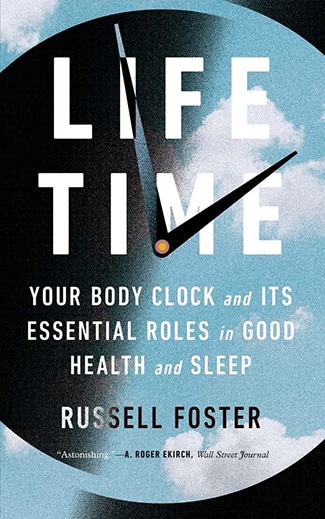You probably know your body follows a circadian rhythm, and probably think of it as primarily regulating your sleep/wake cycle, which it certainly does. But your body’s internal clock also regulates many other physical, mental, and behavioral changes that occur every 24 hours, and working with your circadian rhythm, rather than against it, can boost your health and happiness.
Here to unpack how to do so is Russell Foster, a professor of circadian neuroscience and the author of Life Time: Your Body Clock and Its Essential Roles in Good Health and Sleep. In the first part of our conversation, we discuss some science and background on circadian rhythm and its connection to light exposure. We then turn to the practical implications of having an internal clock, including whether you need to worry about viewing blue light at night, the significant mental and physical harms that can accrue from working the night shift and what can be done to mitigate them, what influences your chronotype and whether you’re a morning lark or a night owl, whether you should be concerned if you’re waking up in the middle of the night, why you wake up to pee in the night, the best times of day to exercise, and how the circadian rhythm can influence when you should take medication.
Connect With Russell Foster
Listen to the Podcast! (And don’t forget to leave us a review!)
Listen to the episode on a separate page.
Subscribe to the podcast in the media player of your choice.
Transcript Coming Soon
Help support independent publishing. Make a donation to The Art of Manliness! Thanks for the support!






0 Commentaires